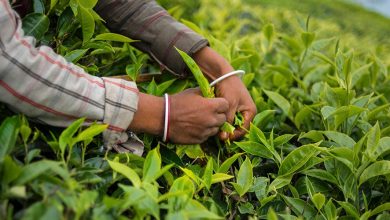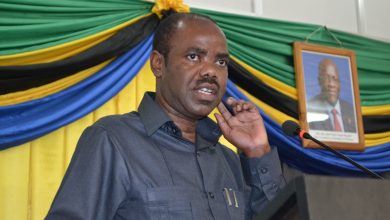Tanzania’s Ukijani Scheme: Women take root

SINGIDA: IN a significant stride for women’s rights and empowerment, the Ukijani project has paved the way for land ownership among women in Tanzania’s Singida Region, overturning traditional customs that previously denied them this fundamental right.
Over 1,000 women have now legally acquired traditional land ownership certificates, marking what they describe as a profound liberation.
Implemented by Helvetas with funding from the European Union, the Ukijani Project empowers women economically, strengthens their knowledge, increases their participation in decisionmaking bodies and promotes their leadership in environmental conservation and natural resource management.
The project also focuses on improving resilience to climate change, boosting family incomes and contributing to climate and environmental restoration in the Manyoni, Ikungi and Iramba districts of Singida Region and the Bariadi Town, Bariadi Rural and Meatu councils of Shinyanga Region.
A key outcome of the project is the increase in women landowners holding official land certificates. Recently, 1,711 certificates were issued, with 1,077 awarded to women in the Iramba District, specifically in the villages of Mbelekese, Kikonge, Usure, Kinkunguna and Tyeme, within the Mbelekese and Mtoa wards.
Shoma Nangale, the Ukijani Project Manager, explained that empowering women and securing these land certificates involved three key steps: Mobilization, capacity building and training.
The process began with educating community members about their rights and responsibilities regarding land and natural resource management, with a focus on land ownership security and women’s rights.
Training sessions were then conducted for leaders of local courts, village land councils and community arbitration committees, further emphasising land ownership safety and women’s rights.
The final step involved surveying data collection, with application forms distributed and data gathered by surveying experts in collaboration with a participatory land use planning team.
This data was then used to prepare the 1,711 land ownership certificates, covering 2,409.29 hectares.
“These certificates provide community members with legal assurance of land ownership, preventing land disputes and protecting against encroachment or unlawful claims,” Nangale explained.
“Crucially, these certificates enhance gender security for women, granting them equal rights to land ownership and reducing abuse and inequality.” Nangale further emphasised that the certificates will stimulate community development, enabling access to loans for economic activities like agriculture, livestock farming and trade.
They will also support sustainable natural resource management, as landowners have a vested interest in preserving their land. Zaina Abdalah, a certificate recipient, described the moment as transformative.
“Land is the foundation of all development,” she stated.
ALSO READ: Breaking barriers: Journey of women in Tanzania politics
“Being legally granted land empowers us to plan and implement development initiatives without fear or the need to seek permission from others.”
“This is true liberation,” Abdalah added. “Women in our communities have faced significant challenges in land ownership, often seen as having no rights unless it belonged to our husbands. The Ukijani Project has brought immense relief, changing our lives for the better and raising awareness of our rights.”
Iramba District Commissioner Suleiman Mwenda likened the project to a return to the Garden of Eden, where residents, now legal landowners, can improve their environment.
He highlighted the training in sustainable agriculture and forest gardening, which is revitalising previously barren areas.
Mwenda expressed satisfaction with the high number of women participants and certificate recipients, noting that his office frequently handles cases of women losing land due to a lack of legal ownership.
“This initiative will not only eliminate conflicts but also contribute to increased production,” he said, acknowledging the contributions of village authorities, Helvetas, the Tanzania Resource Network and the Greening Foundation.
The Ukijani Project’s success in the Iramba district offers a valuable model for other projects and government institutions, demonstrating the importance of community participation, gender equality and empowerment.
Development stakeholders should learn from the project’s processes, particularly in their efforts to empower women. True development and liberation for women begin with land ownership.
When achieved, women are empowered to drive development and uplift their communities.





